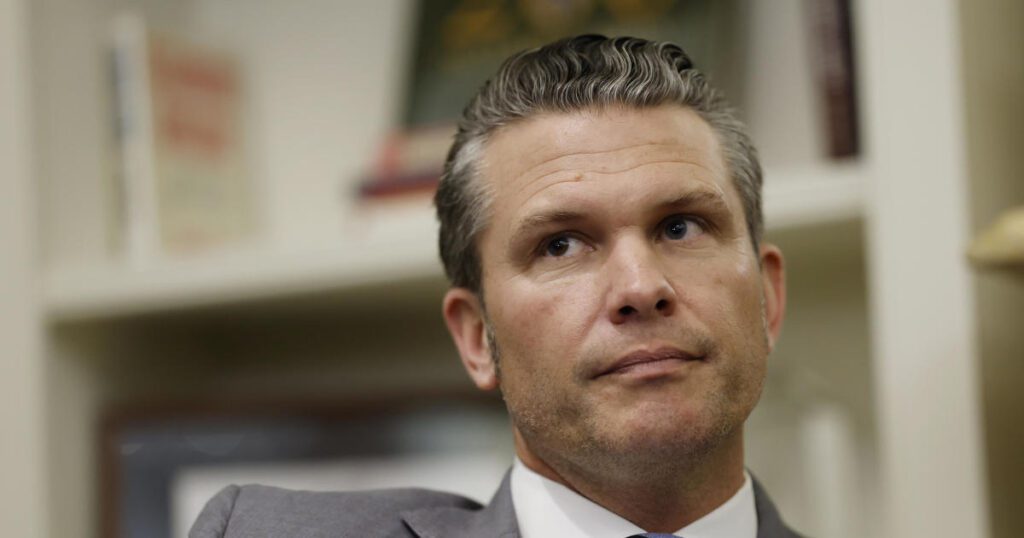Concerns Over Pete Hegseth’s Defense Secretary Nomination and Women’s Combat Roles
Many veterans and officials within the Department of Defense are expressing worry that the significant advancements made in recent decades could easily be reversed if Pete Hegseth, who has been nominated by President-elect Donald Trump to serve as defense secretary, is confirmed by the Senate.
Veterans Voice Concerns
Army veterans have relayed their apprehensions to CBS News regarding Hegseth’s potential policies. They fear he may seek to reinstate a ban preventing women from serving in ground combat units. While Hegseth argues for tougher standards that should apply equally to both men and women, his previous writings and statements reveal a strong opposition to the inclusion of women in direct combat roles.
Allison Jaslow, a former Army captain and CEO of Iraq and Afghanistan Veterans of America, expressed her strong feelings on the matter: “I would love for him to look into the eyes of the loved ones of the women who were killed in action in Afghanistan and Iraq and tell them that they were not in combat.”
Historical Legislative Changes
In the wake of the Gulf War in the early 1990s, there was a bipartisan shift among lawmakers to recognize women’s contributions by repealing a 1948 law that barred them from combat positions. This change, made against the wishes of many military leaders at the time, allowed women to serve in air and naval combat units. In 2013, the repeal of the direct combat exclusion rule enabled women to join ground combat units, including infantry and special operations.
Public Opinion on Women in Combat
The inclusion of women in combat roles has garnered broad support across the U.S., with voters from both major parties and independents affirming that such inclusion does not undermine military effectiveness, according to a Pew Research Center study from 2013.
Controversial Statements from Hegseth
Hegseth, who previously served in the Army and is now a Fox News host, has faced backlash for his outspoken views on this issue. In a recent podcast, he stated, “I’m straight-up just saying we should not have women in combat roles. It hasn’t made us more effective; it hasn’t made us more lethal.”
He expanded on this by asserting that physical strength should dictate combat roles, specifically mentioning elite units like Navy SEALs and Army Rangers, where he perceives that men hold a distinct advantage. In his book, "The War on Warriors: Behind the Betrayal of the Men Who Keep Us Free," he elaborates on the belief that women should not serve in these capacities, arguing that their inherent instincts as nurturers conflict with the violent nature of combat.
Integration of Women in Military Roles
Though Hegseth acknowledges women’s service in supportive roles within the military, such as medical or aviation positions, there is ongoing tension regarding the perceived lowering of standards within military training programs to accommodate women. He claims that recent adjustments made in training have compromised the integrity of military standards.
Former military officials voiced concerns over Hegseth’s tactical focus, emphasizing that his views on women in combat might not align with the strategic leadership required of a defense secretary. Retired Army Command Sgt. Maj. Jeffrey Mellinger pointed out that many in the military believe the easing of training standards reflects poorly on the branches involved.
Strong Support for Hegseth
Despite the controversy surrounding his nomination, Hegseth has received notable backing from several military veterans within the House of Representatives. As Trump continues to rally support for Hegseth among GOP Senate lawmakers, the discussion about the future of women in combat roles remains at the forefront of the national dialogue.
In this critical juncture, the administration’s approach to military standards and the inclusion of women in combat positions will likely remain pivotal issues as debates continue in the Senate regarding Hegseth’s confirmation as defense secretary.


